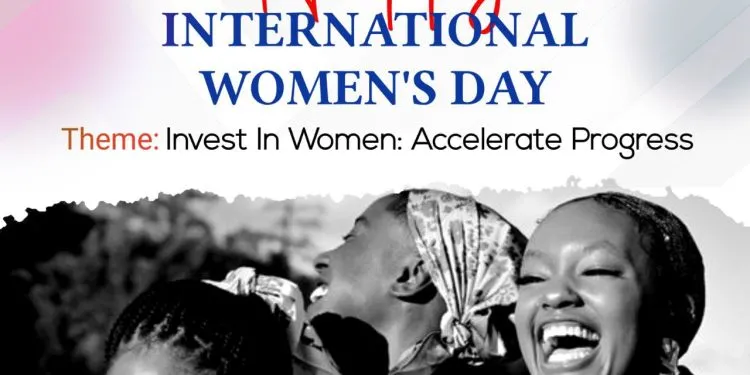As International Women’s Day unfolded globally under the banner “Invest in women: accelerate progress,” there remains a considerable gap in bridging the divide between men and women. A recent UN report, preceding this year’s festivities, underscores the need for an additional $360 billion investment in women each year to attain gender equality and empowerment.
According to the report, by 2030, over 340 million women and girls, constituting around 8 percent of the global female population, will face extreme poverty. Alarmingly, nearly one in four is anticipated to encounter moderate or severe food insecurity unless decisive action is taken.
While women in various parts of the world advocate for women’s rights in workplaces and government representation, such initiatives are notably scarce in Cameroon. Celebrations are predominantly concentrated within government ministries, state corporations, and a handful of non-governmental organizations. In Buea, for example, the majority participating in the march were from regional ministries and NGOs.
The disparity becomes more apparent when considering the plight of rural women in places like Muyenge or those caught in the Anglophone conflict in a bush in Kwakwah. As of 2022, the unemployment rate for women in Cameroon stood at 4.58 percent.
Another report from 2021 highlights that women in Cameroon constitute the poorest demographic, despite contributing over 55.8 percent to national agricultural production. OCHA reveals that Cameroonian women make up 71.6 percent of workers in the informal agricultural sector, with 51.5 percent living below the poverty line and 79.2 percent facing underemployment.
The celebration of Women’s Day needs to address these issues, yet it often transforms into a mere ceremonial event with privileged women indulging in festivities and acts of indecency. Significant resources, including funds spent on Women’s Day fabrics and preparatory activities, could be redirected to assist struggling rural women in Forawa, Kikaikelaki, Akwaya, and Ekata.
Post-celebration, the concerns of these women fade into silence until the next March. Cameroonian women continue to grapple with numerous challenges, many of which are overlooked on Women’s Day. Notably, no woman in Cameroon has ever held prominent positions like President of the Republic, Speaker of the National Assembly, President of the Senate, Prime Minister, or Governor of a region.
Workplace harassment remains a pervasive issue, often endured in silence due to fear of disbelief. A study conducted by the NGO ALiGN in Buea, Southwest Cameroon, in 2021, revealed disturbing statistics. Respondents reported experiencing physical, emotional, and sexual abuse, with 43% acknowledging physical violence, 42% emotional violence, and 21% falling victim to sexual violence, primarily sexual harassment.
In a disconcerting incident on February 28, a woman was dismissed from the Cameroon Human Rights Commission after taking her boss to court for sexual harassment. In Western countries, such an accusation would prompt a suspension pending investigation. However, in Cameroon, where substantial resources are allocated to Women’s Day, the prevailing intimidation forces many women to endure suffering in silence. This only highlights however, that the fight for gender equality is still a Herculean task.



